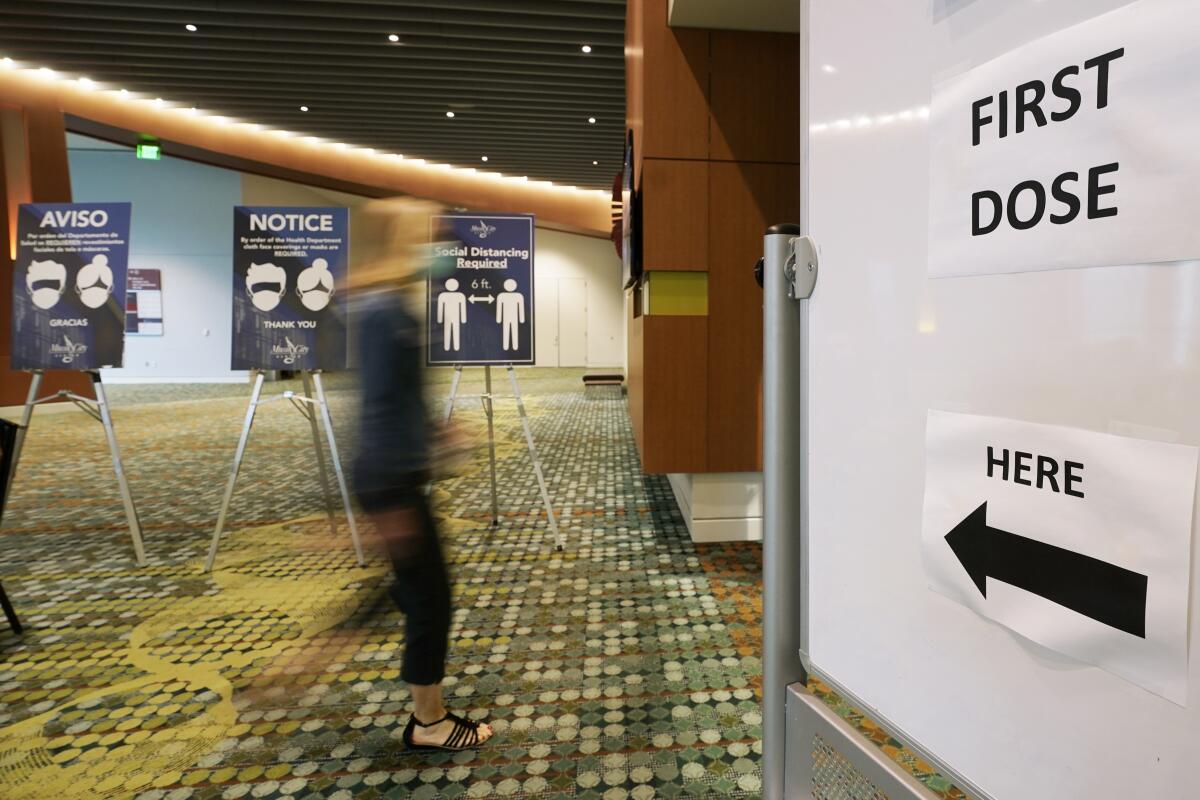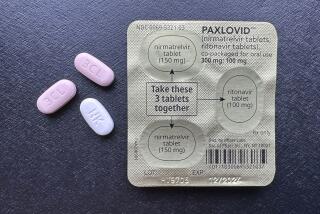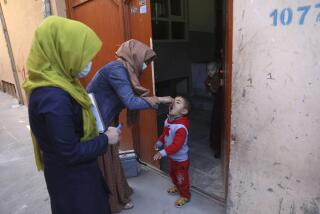Op-Ed: Biden’s vaccine summit is a chance to commit doses where they’re needed most

- Share via
The world stands at a critical juncture of the COVID-19 pandemic. Countries that lack the first round of vaccine coverage are extraordinarily vulnerable to the highly infectious Delta variant and are also seedbeds for new variants that could quickly spread worldwide.
Governments of countries where vaccines are being produced — the United States, European Union members, the United Kingdom, India, Russia and China — need to cooperate under United Nations leadership to ensure that a sufficient supply of vaccine doses reaches the poorest countries. The Lancet COVID-19 Commission, which I chair, is working with the U.N. system to strengthen the global response.
High-income countries now have more than 50% of their population fully vaccinated. Yet the fully vaccinated population in Africa remains under 4%. This lack of vaccine coverage in Africa, and in low-income countries elsewhere, poses an imminent danger to these populations.
President Biden has called for a vaccine summit on Wednesday. It is important that the U.S. hold this meeting in cooperation with China, India, Russia and the other vaccine-producing countries, and with the U.N. system. Only the U.N., with its universal membership and its operational capacity in low-income countries, has the ability to coordinate the rapid global scale-up of vaccine coverage.
In April 2020, the U.N. created COVID-19 Vaccines Global Access, or COVAX, to provide vaccines to lower-income countries. The countries expected timely deliveries, but COVAX has been unable to buy a sufficient volume of vaccine doses mainly because high-income countries have repeatedly cut to the front of the queue. Moreover, the vaccine-producing countries’ governments have imposed export caps, blocking vaccine deliveries even when COVAX already has contracts for them. The companies hardly suffer; rich countries pay more for the doses.
The supply crisis facing low-income countries in Africa and elsewhere will not resolve itself. Indeed, high-income countries are now beginning to offer vaccinated people a third dose, even before highly vulnerable groups in the poorest countries (the elderly, health workers, the immunocompromised and others) have received their primary vaccination.
Global opportunities for scaling up vaccine production are also being hampered by some governments’ continued insistence on enforcing the patents on key vaccine technologies, even though these patents are held by academic institutions that were funded by the governments (notably by the National Institutes of Health). Likewise, public money funded the clinical trials and rollout of the vaccines. Despite the global urgency of the pandemic, lifesaving public goods have been privatized.
The World Health Organization has set minimum targets for vaccine coverage in every country: at least 10% of the population by the end of September, 40% by the end of 2021, and 70% by the end of June 2022. The current vaccine allocation system will not achieve this.
The governments of the vaccine-producing countries should take these steps:
First, when governments meet this week at Biden’s vaccine summit, they should chart a path to achieve the WHO targets in all countries, including 40% global coverage by the end of this year. The vaccine producers should cooperate fully by disclosing all existing orders (and prices) on their books, so that the U.N. and governments can prioritize underserved countries.
Second, the U.N. system, with the full support of governments and companies, should set delivery timelines for every low-income country aligned with the WHO targets. The WHO and COVAX, and other U.N. agencies such as UNICEF, should work with the recipient countries to scale up the “last-mile” deployment systems for the arrival of the vaccine doses.
Third, the new $650-billion allocation of special drawing rights just approved by the International Monetary Fund should be used, in conjunction with other emergency pandemic resources, to ensure that short-term financing constraints pose no obstacles to the supply of vaccines.
Fourth, the governments of the vaccine-producing countries should increase global production. This starts by agreeing, in line with long-standing trade agreements on public health, to waive intellectual property rights and to promote technology sharing. Promising vaccines that are now in clinical trials should also be supported with official financing for rapid production and deployment upon regulatory approval.
Lastly, governments in all countries should make clear to the public that the vaccines are not sufficiently effective on their own to suppress the community transmission of the coronavirus. Additional public health measures — including masks, physical distancing, contact tracing and limits on indoor gatherings — are still needed.
The bottom line is that we must treat universal vaccine coverage as an urgently needed global public good, not as an eventual outcome of market forces. Biden’s vaccine summit this week can provide the vital breakthrough we need, by empowering the U.N. with the vaccine doses and finances it needs to ensure immunization for all.
Jeffrey D. Sachs is director of the Center for Sustainable Development at Columbia University and president of the U.N. Sustainable Development Solutions Network.
More to Read
A cure for the common opinion
Get thought-provoking perspectives with our weekly newsletter.
You may occasionally receive promotional content from the Los Angeles Times.










